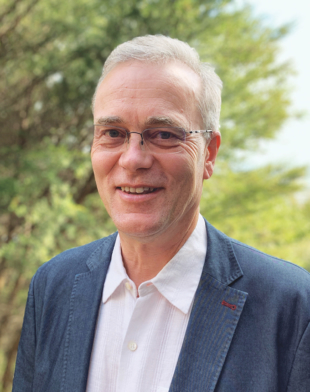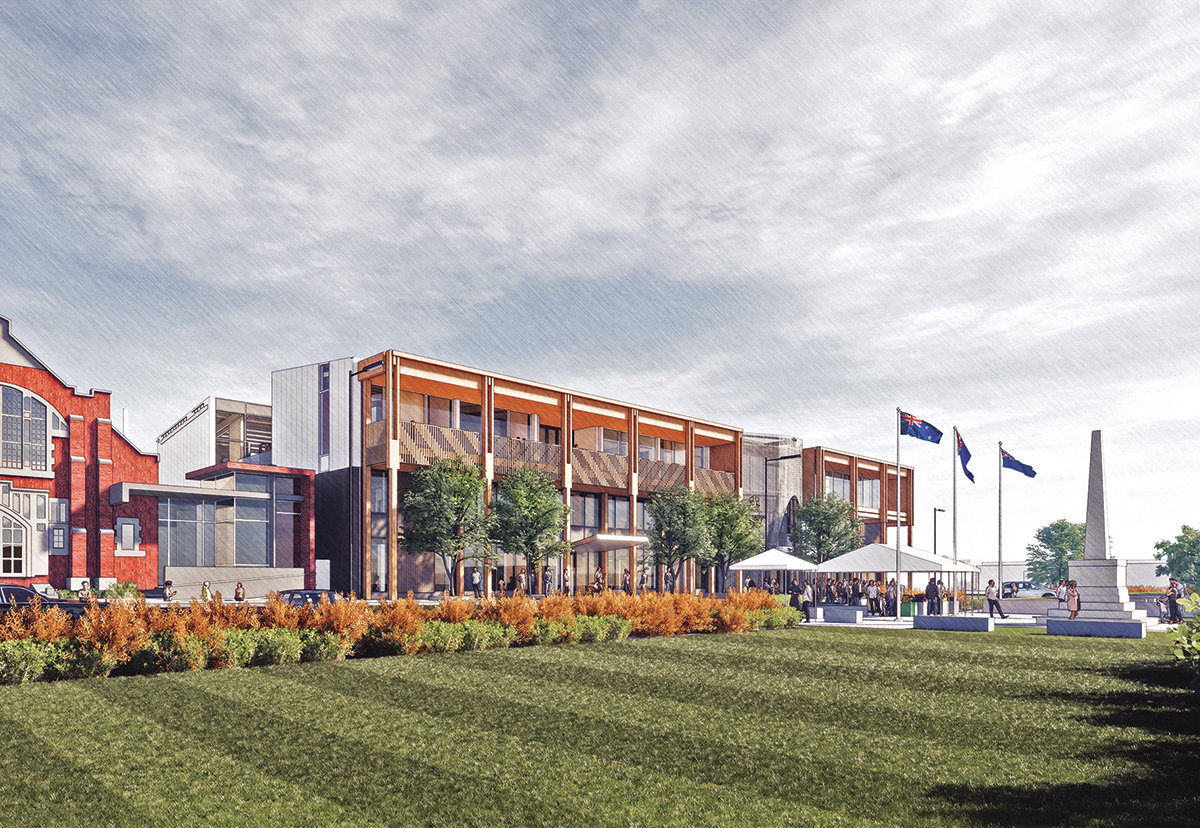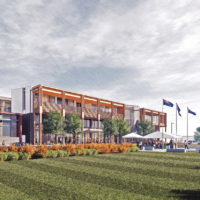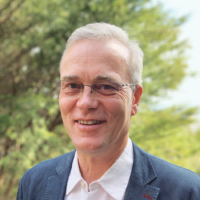Quality and reliability have enabled Nelson Pine Industries Ltd. to carve out a niche in the industry as a world-renowned manufacturer of sustainably sourced, technologically advanced wood products. The Richmond, New Zealand-based company is acclaimed for its GoldenEdge medium-density fiberboard and NelsonPine laminated veneer lumber, which are of great value across many applications.

Since its founding in 1984, the group has remained firmly rooted in its legacy of sustainable timber resource management, while robustly branching out into new areas of research and technology.
As a wholly owned subsidiary of Japan’s Sumitomo Forestry Co., the N.Z. brand is an evergreen example of collaboration between the two nations toward more versatile, eco-friendlier wood products, in line with the global initiative to achieve carbon neutrality by 2050.
“Carbon neutrality by 2050 is a prominent discussion for both Japan and New Zealand; there is a big push for certain industries, with sustainability at the forefront,” shared Kai Kruse, CEO of Nelson Pine Industries. “Forests and timber products are a carbon sink; timber products likewise come with tremendous advantages as building and construction materials all sequester carbon over many decades while in use as furniture, doors or in the structure of a house,” he added.
At its core, the forestry industry exemplifies the concept of carbon neutrality. But there are inherent challenges to the use of wood in construction — mainly in the natural variances in performance, strength and fire ratings. This is where technology comes in.
“The industry is no longer just the traditional archetype of “lumberjacks and muscles,” but one of high-tech advancements that allow us to engineer wood to the desired strength for the structure,” Kruse said, noting that technology has enabled them to build structures of three and five stories, whereas they could previously only go as high as two.
“Now, we are working on projects of up to eight stories. Soon, we’ll have 10-, even 20-story buildings out of wood. Perhaps not 100%, but with big timber structural elements,” Kruse explained.
Elements of this technology have been developed in conjunction with long-time associates Sumitomo Forestry, a partnership that has proven fruitful not only in the arenas of market share and marketing, but also in the most vital aspects of product research and development.
“Sumitomo Forestry has its state-of-the-art Tsukuba Research Institute; they help develop construction systems for high-rise buildings, using our products,” Kruse shared.
“The key for us is to continue to participate and spearhead the growth of using engineered wood products for the construction industry and to address issues that would otherwise be stumbling blocks.”









